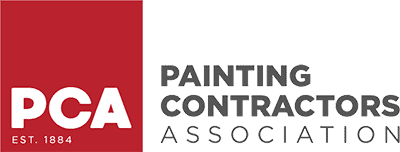Why is it Important to Recycle Paint?
Paint can have several uses after you’re done with it, and recycling it can keep toxic chemicals out of the soil and water. While paint today is far less toxic than it used to be, oil-based paint is usually considered hazardous waste and contains toxic chemicals that can leach into soil and water or harm waste service workers. Paint can be remixed, reused, and repurposed. In Colorado, since 2015, each new can of paint sold has a small fee added that funds the non-profit organization PaintCare to manage free statewide paint recycling. To date they’ve recycled over four million gallons in Colorado alone! Higher quality paint can then be resold at recycled paint stores where people can buy paint for a very small cost.
Latex, water-based paint is the majority of paint recycled in the U.S. today. It can be remixed and reused. While the hue might not be the most attractive (it might be marketed at grey sludge or lentil soup color) it can be used for large-scale community projects as a base coat or in areas like graffiti removal in underpasses where the hue is less important. It can also be mixed with concrete, used to make landfills more efficient, and in other construction materials. Oil-based paint is sent to processors who use it for fuel blending.
What Should I Do with Leftover Paint?
If you’re feeling motivated, you can always apply another coat or paint another wall or room in your house. You can also see if that friend that always takes free stuff wants some extra paint for their house. If you do decide to store and keep leftover paint, seal it tightly and store it in a cool, dry place to prevent the paint from going bad. Realistically, recycling leftover paint is often the best option. When you go to recycle it, be sure that it’s not dried up, and that it’s in the original, labeled container and isn’t leaking.
Generally, the following types of paint can be recycled: latex paint (acrylic), oil paint (alkyd), stains, shellacs, lacquers, varnishes, urethanes, sealers, and textured coatings. Unfortunately, most places can’t recycle empty and dry paint cans (though it’s always best to contact your recycling service) and they can safely be disposed of in the trash.
Where Can I Recycle Paint Near Me?
Foothills Painting in Denver consistently hosts paint recycling events. Foothills partners with GreenSheen to get paint out of your garage and onto better purposes. GreenSheen is one of the number one paint recyclers in Colorado and has free, unlimited paint recycling at their Denver location Monday – Saturday. For more drop off locations, see PaintCare’s drop off locations in Colorado.
Follow Foothills Painting on Facebook for updates on where the next paint recycling event will be or you can call our office at 970-286-0060 for help finding a paint recycling location near you.
What Paint Products Can’t Be Commonly Recycled?
Aerosol (spray) paint, paint thinner, solvents, cleaning agents, adhesives, drywall mud, roof patch, etc usually can’t be recycled at paint drop-off centers. If unsure, see this complete list of accepted and unaccepted products.
Bottom Line
If you’re not quite ready to recycle that paint on the bottom shelf in your garage, then be sure to label the room and location where it was used, store it off the ground, seal it tightly, keep it out of extreme heat and cold, and shake it vigorously when you’re ready to use it again. If you’re not keeping the paint, go ahead and recycle it.
Recycling paint has never been easier. Your unwanted paint can be a helpful benefit for someone in need or it can be remixed and used again. At a minimum, you’ll help reduce pollution and potential harm to service workers who handle waste.





